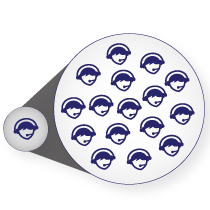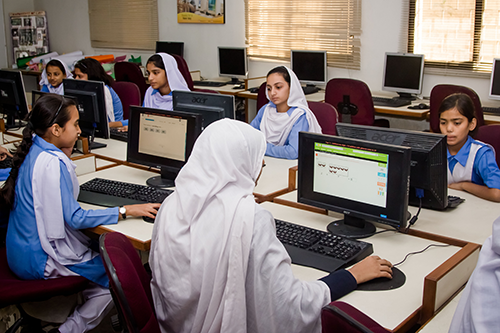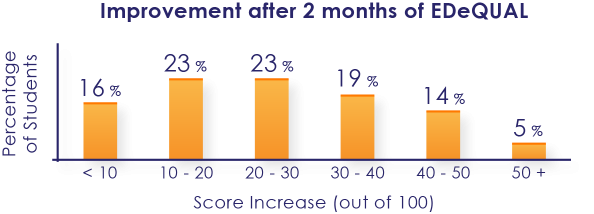COURSES
View the wide range of STEM topics we cover for public schools.
Learn more
Learning outcomes for the vast majority of the 25 million students who attend any type of school in Pakistan – government, philanthropy-supported, or low-income private – are dismal. The reasons for education underperformance are multiple and complex, including:
Badly managed schools
Poor pedagogy and lack of skilled teachers
Low quality instructional materials
Lack of independent assessments
Insufficient resources.
Solving Pakistan’s education crisis will require a system-wide approach and considerable political will.
Solutions that seek to bring educational change that is meaningful, rapid and scalable must harness technology effectively. Why? Because technology can provide three key ingredients to improving education performance:
• Rigorously organised courses that meet Pak National Curriculum requirement
• Excellent online instructional materials
• Blended learning pedagogy that engages teachers and students
• Detailed reporting and analytics on class-wise and individual student


• Technology-enablement advice to schools
• Cost-effective hardware solutions
• Deployment in existing physical spaces in school and using existing staff
• Teacher training
• Cost-effective educational software licensing
• User-friendly learning management system (MyEDeQUAL) for teachers and students to access course content, assessments and reporting
• Cloud-based and local server-based deployment
• Standardised, bilingual (English and Urdu) instructional content

EDeQUAL’s blended learning method combines each of these key ingredients, and has shown marked improvement in results of low income students.
Implementing technology-enabled learning in Pakistan’s schools to deliver rapid and measurable results in student learning outcomes is challenging. Four components must work together to deliver effective outcomes:
Essential technology infrastructure
High quality instructional materials and assessments that are accessible through a user-friendly online learning management system
Teachers who are trained to implement blended learning.
School leadership that is committed to doing things differently
These components are brought together by EDeQUAL’s blended learning methodology.
140 students in grades 5, 6, 7, and 8 took EDeQUAL’s online diagnostic assessment for grade 3 Math. Out of this group 36 students were selected for the EDeQUAL Math program in Nov 2015. The program was implemented in the school’s computer lab, where students spent 30 minutes per day for six days each week using EDeQUAL’s online materials and method, supported by their school teachers. Two bi-monthly assessments were conducted between Feb and May 2016 to assess student improvement.

Results after two months of EDeQUAL
Average score improvement in 2 months of EDeQUAL = 23%
Four out of five students improved their score by over 10%
Two out of five students showed considerable improvement, with a score increase of over 30%

View the wide range of STEM topics we cover for public schools.
Learn moreLearn more about how EDeQUAL is implemented at schools, and what some have to say about our program.
Learn moreLearn about education reforms in Pakistan, and how EDeQUAL is helping solve the education gap in the country.
Learn more